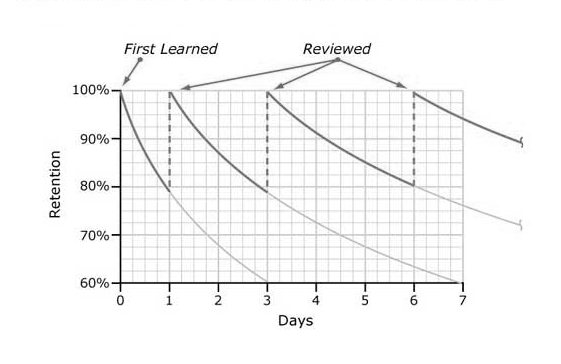Member-only story
Hacking the Forgetting Curve
An underutilized scientific theory that deserves a startup.
In 2013, I blogged about a study technique based on an insight that there’s an optimal time to review what you learned. Review too early you’re wasting your time, review too late you’ve forgotten too much and have to relearn it.

Review at the right time — when you still remember 80% of it — you reap the benefits of fast recall and longer-term memory at the same time. It’s the most efficient way to retain knowledge.
The human memory follows a pattern of forgetting. German psychologist Hermann Ebbinghaus first discovered it in 1885 and named it the Forgetting Curve. In 1992, Polish researcher Piotr Woźniak wrote computer programs based on it to more accurately predict the curve’s knowledge retention.
Since then, not much progress has been made. Relevant apps like Anki still have UIs stuck in 1995. Duolingo has some elements of it, but not in a significant way. Perhaps more pressingly, people are not aware of this “memory hack” that basically makes us more knowledgeable.
Over the years I’ve always had this idea floating in my head, but it never occurred to me that it’s worth a startup, probably because it doesn’t have a clear way to make money.
I’ve always hoped that someone would make something out of it. It’s about helping people remember things better. It’s about helping people learn the knowledge that matter. For God’s sake, it’s about making people smarter.
We’re learning everyday
Learning doesn’t stop after graduation — whether you like it or not.
We’re still learning everyday. When you go on social media, you’re learning about your friends and acquaintances. When you read a news article, you’re learning about the state of the world.
You read a Medium article, you’re learning about the ideas in it. You read some insightful comments on Hacker News, you’re learning about people’s ideas about an idea.
You watch a video on YouTube that explains what blockchain is, you’re learning. You watch a video on your news feed that shows you how to make Russian tomato soup (it’s Borscht), you’re also learning.
